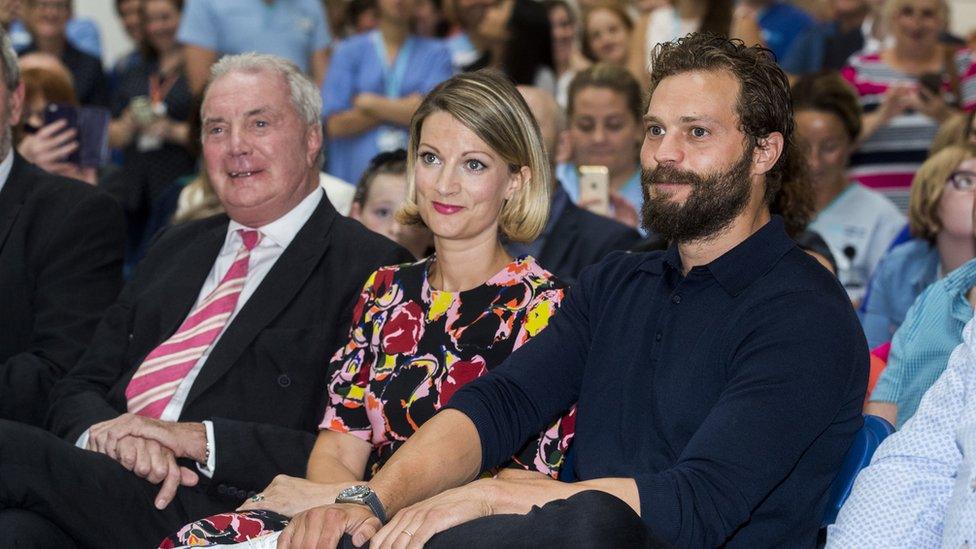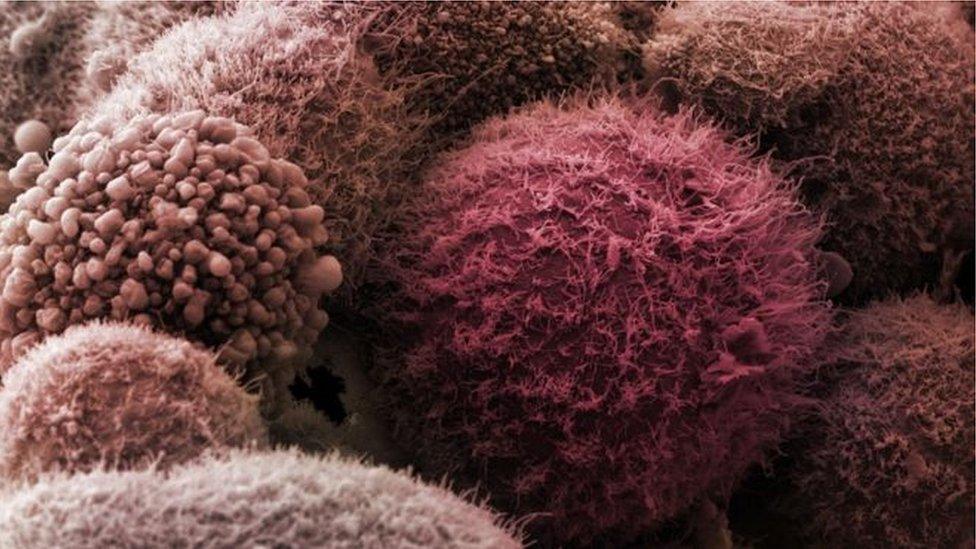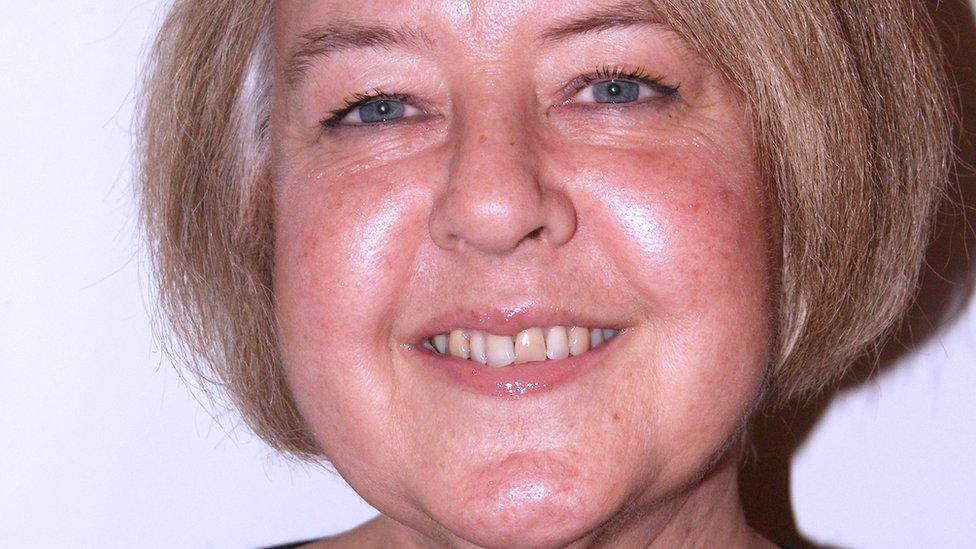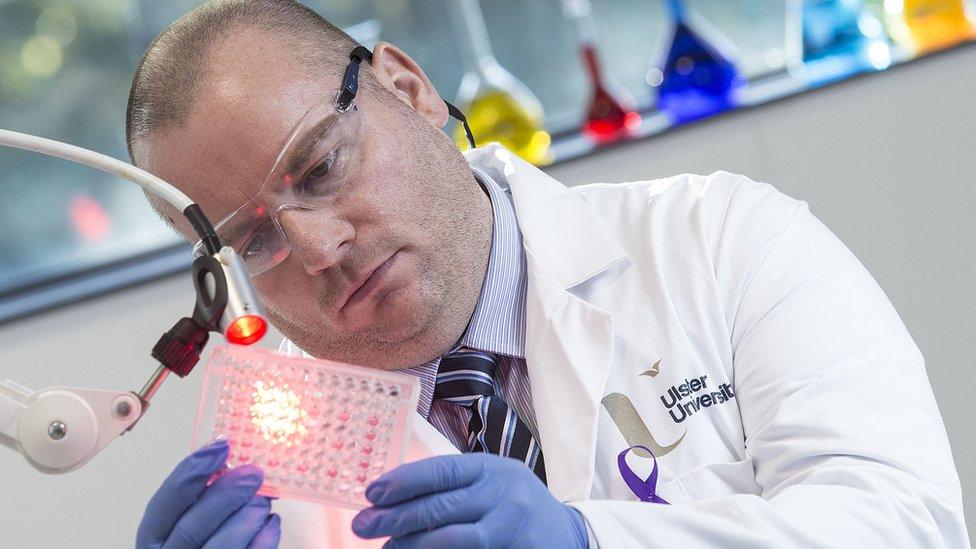Jamie Dornan talks of mum's pancreatic cancer death
- Published
Actor Jamie Dornan talks of his mother who died from pancreatic cancer
Actor Jamie Dornan has spoken about the pain of his mother's death as he backed a group set up to support pancreatic cancer sufferers.
The County Down man's mother, Lorna, died from the disease in 1998 when he was just 16.
About 270 people a year in Northern Ireland die as a result of pancreatic cancer.
It has one of the lowest survival rates of any type of cancer.
Dornan, who has starred in the TV drama The Fall and the Fifty Shades film trilogy, has been made the patron of a new group that aims to raise awareness about the disease.
'No bigger impact'
NI PanC has been set up in partnership with two other charities - Pancreatic Cancer Action (PCA) and Pancreatic Cancer Research Fund (PCRF) - with the new group focusing on Northern Ireland.
It was launched at Belfast's Mater Hospital on Wednesday and involves cancer survivors and relatives of those who died.

Cancer survivors, relatives of cancer victims and medical professionals attended the NIPanC launch
Dornan, originally from Holywood, told the BBC there had been "no bigger impact" on his life than his mother's death.
"I lost my mother to pancreatic cancer 20 years ago last week," he said.
"I've always wanted to be associated to a charity that means something to me in a major way.
"It all seemed very fitting I could do whatever I can promote awareness of this horrendous disease."
'Never over it'
He said that losing his mother had had a profound effect on his life.
"Horrific - I often say this but you don't really know what the effects are of losing someone, particularly when you're so young," he said.
"They are daily and continue to have an effect - you feel that they are manifesting over time in a way you didn't expect them to.

Jamie Dornan was joined at the launch by his sister Jessica Dornan Lynas and his father Jim
"You never get over it and now that I have kids myself I see they don't have a grandmother from my side - that's an odd thing."
The fact that the extremely low survival rates for pancreatic cancer have not improved significantly in 40 years made him "all the more determined and willing" to help shed light on the subject.
'Real prospects'
Dr Mark Taylor, the chairman of NIPanC, said the strength of the group is that it brings together individuals who have "suffered from the cancer", families who have an experience of its effect, as well as medical professionals.
"There are very real prospects of innovative research improving treatments and increasing the survivability of this cancer," he said.
"For example, the pioneering 'sonodynamic therapy' research taking place at the Ulster University, which aims to make chemotherapy and radiotherapy more effective for pancreatic cancer."
He said that it was crucial to increase the public's awareness of the symptoms of the disease.
"We must channel more funding, both public and private, into necessary research and we must offer better support to families affected by pancreatic cancer," he added.
"These are the goals of NIPanC and I am wholly behind this new group in taking forward this crucial work within Northern Ireland."


Pancreatic cancer has one of the lowest survival rates of all types of cancer
Common symptoms of pancreatic cancer include:
stomach and back ache
unexplained weight loss
indigestion
changes to bowel habits, including floating faeces
Other symptoms include:
loss of appetite
jaundice (yellow skin or eyes or itchy skin)
feeling and being sick
difficulty swallowing
recently diagnosed diabetes
- Published1 November 2017

- Published6 January 2017

- Published17 November 2015
